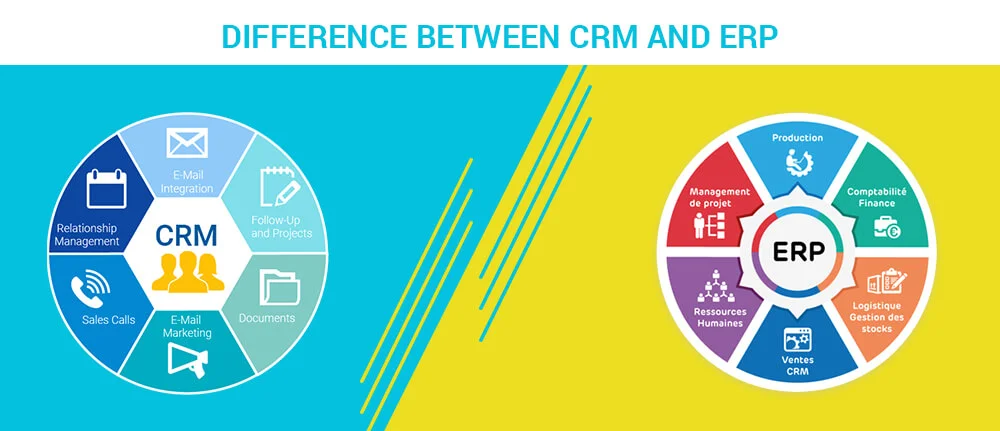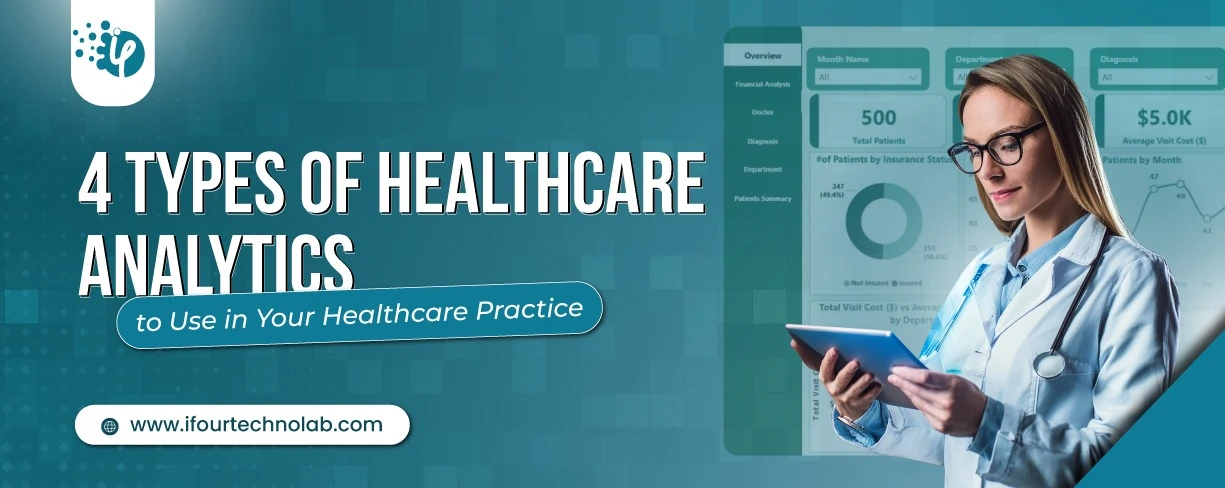4 Types of Healthcare Analytics with Examples & Success Stories
You already know how healthcare creates tons of clinical data every day. Patient visits… Labs… EMRs… doctor portals… scheduling systems… everything is generating numbers nonstop. But...
Listening is fun too.
Straighten your back and cherish with coffee - PLAY !

Custom software outsourcing companies in USA have witnessed that business are adopting CRM and ERP systems these days to accelerate business growth. CRM and ERP are two important technology acronyms that businesses need to know about. Customer Relationship Management (CRM) and Enterprise Resource Planning (ERP) are similar in many ways, as they are both used to enhance the profitability of a business.
(solutions, 2015) says, these systems are similar in some areas, and can be completely integrated with other. However, as their central functionalities are completely different, it’s best for a business to first look at them as separate entities i.e. stand-alone systems. When viewed independently, it’s easier to see how ERP and CRM each play a role in improving efficiency and increasing sales.
CRM is an abbreviation for customer relationship management. It is a phrase used to describe all facets of interaction that a company does with its customers. The interaction may be either sales related or service related.
CRM at its simplest is a system with processes for managing a company’s interactions with existing as well as potential customers.
CRM is developed to include all sectors of the customer experience so as to keep the customer happy and in turn making them loyal and more valuable to the business. It is the process of identifying potential prospects, nurturing them and guiding them through the sales process to improve the business. CRM systems like Microsoft Dynamics CRM and Salesforce provide a standardized technique for collecting and sharing customer data and classifying customer interactions.
Since all of the data is standardized, it is easily shared across the business. Various activities that CRM performs are: used by executives to create sales projections, by sales reps to maintain communication with clients, by shipping clerks to verify addresses, and by the billing department to create invoices. This lets the executives, managers, and developers to share data in software development companies
ERP is an abbreviation for enterprise resource planning. ERP software is used to manage the business. It integrates all aspects of an operation for product, including planning, development and manufacturing processes, human resources, finance and sales and marketing.
Like CRM, ERP allows for the rapid sharing of standardized information throughout various departments. Executives, managers, and other employees all enter information into the ERP system, creating a real-time, enterprise-wide snapshot.
The prominent feature of ERP is the shared database that provides an array of functions which is used by almost all of the departments of the organization. Implementation of this software enables all the departments of the organization to access up to date information. In addition to this, the entity is also able to analyze the performance, profitability and liquidity at any point of time.
The most important benefit of this software is that as it is integrated software the redundancy of data is minimized. The software also provides standardized procedures, processes and reporting as well that are common in the industries.
According to (S, 2015), following are the major differences between CRM and ERP:
ERP consolidates the information provided by different functional groups of the organization through systems like CRM, Supply Chain Management (SCM), and Human Resource Management (HRM) etc.ERP was developed earlier than CRM.
CRM is oriented towards the management of relationship with customer of the enterprise while ERP is majorly concerned with planning the resources of the organization to ensure its best possible use.
| Basis for comparison | CRM | ERP |
|---|---|---|
| Definition | It is Computer software that ensures companies to record each and every transaction and interaction with the existing and prospective customers is CRM. | It is Integrated pre-packaged computer software that lets the organization to manage and control the on-going processes in the organization. |
| Subset/Superset | Subset | Superset |
| Focus | Increasing Sale | Reducing Cost |
| Developed in | 1990 | 1960-1970 |
| Orientation | Customers | Enterprise |
| Utilization | Front office activities | Back office activities |
Customer Relationship Management helps the organization to maintain a long term relationship with its customers. Software development companies in USA are also leveraging this benefit. In addition to this, it is also useful to know about the preferences of the clients and develop trust. CRM enables the organization to know the preferences of the clients. On the other hand ERP combines various functional units of the organization together so that they can freely share the information. It lets the various functional units to communicate with each other on a real time basis through a centralized computerized system. Apart from the above differences there is commonality among the two softwares and that is, they both aim to enhance the profitability of the company.
S, S. (2015, September 11). Differences Between CRM and ERP. Retrieved 04 21, 2016, from Differences Between CRM and ERP: http://keydifferences.com/difference-between-crm-and-erp.html
solutions, S. S. (2015, June 11). CRM vs ERP. Retrieved 04 21, 2016, from CRM vs ERP: What’s the difference?: http://www.sysco-software.com/crm-vs-erp/

You already know how healthcare creates tons of clinical data every day. Patient visits… Labs… EMRs… doctor portals… scheduling systems… everything is generating numbers nonstop. But...

Let’s keep it simple. In healthcare, trust, safety, and human dignity come first, no matter what solution you build. The same applies to AI. Today, it is everywhere, from clinics...

Let's keep it real. The whole point of building autonomous Agents is to cut manual work and keep focus on business. Approvals that used to take days can happen in hours because...